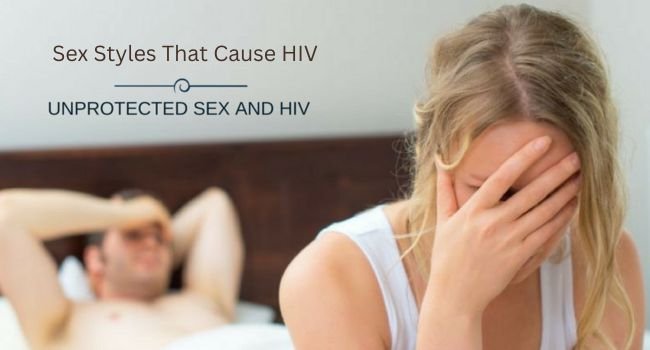Sexual activity plays a significant role in the transmission of HIV, a sexually transmitted infection. It is important to be aware of the potential risks associated with certain sex styles to prevent the spread of HIV. In this article, we will discuss various sex styles and their implications regarding HIV transmission.

What are the Sex Styles That Pose a Higher Risk of HIV Transmission?
- Unprotected Anal Sex
- Unprotected Vaginal Sex
- Unprotected Oral Sex
Unprotected Anal Sex
Unprotected anal sex without a condom is considered the highest-risk sexual activity for HIV transmission. The delicate tissues in the anus are more prone to tears, increasing the likelihood of direct contact with HIV-infected blood, semen, or rectal fluids.
Unprotected Vaginal Sex
Engaging in unprotected vaginal sex without a condom also carries a significant risk of HIV transmission, especially if one partner is HIV positive. Vaginal intercourse can lead to the exchange of blood, semen, vaginal fluids, or menstrual blood, which can contain the virus.
Unprotected Oral Sex
While the risk of HIV transmission through oral sex is relatively low compared to anal or vaginal sex, it is not completely risk-free. Engaging in unprotected oral sex with an HIV-positive partner can still pose a risk if there are open sores, cuts, or bleeding gums in the mouth or genital area.
FAQs about Sex Styles and HIV Transmission
Ans: Yes, using condoms consistently and correctly during sexual intercourse can significantly reduce the risk of HIV transmission. Condoms act as a barrier, preventing direct contact between bodily fluids that may contain the virus.
Ans: No sexual activity is completely risk-free when it comes to HIV transmission. However, certain sex styles, such as mutual masturbation or non-penetrative sexual activities, have a lower risk compared to unprotected anal, vaginal, or oral sex.
Ans: If you believe you have been exposed to HIV, it is crucial to seek immediate medical attention. Contact a healthcare professional or visit a sexual health clinic to discuss your concerns and undergo appropriate testing and evaluation.
Ans: If you have engaged in a high-risk sexual activity and suspect possible HIV exposure, it is crucial to seek immediate medical attention. Contact a healthcare professional, such as Dr. Monga, for emergency care and to discuss the possibility of HIV testing and post-exposure prophylaxis (PEP) to reduce the risk of infection
Ans: HIV cannot be transmitted through casual non-sexual activities or contact such as hugging, shaking hands, sharing utensils, or using public facilities. It is primarily transmitted through specific bodily fluids during unprotected sexual intercourse, sharing needles, or from an infected mother to her child during childbirth or breastfeeding.
